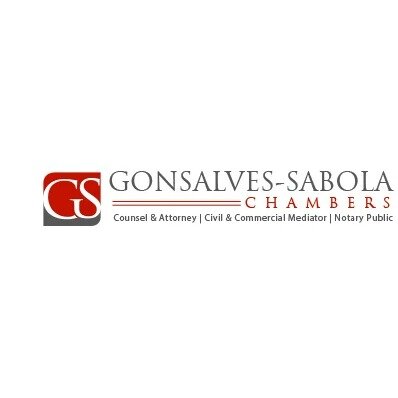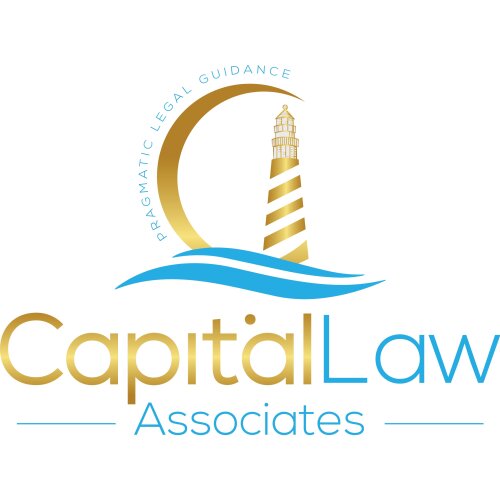Best Due Diligence Lawyers in Nassau
Share your needs with us, get contacted by law firms.
Free. Takes 2 min.
List of the best lawyers in Nassau, Bahamas
About Due Diligence Law in Nassau, Bahamas
Due diligence in Nassau, Bahamas, is a comprehensive process whereby individuals or companies take reasonable steps to satisfy legal requirements before entering into transactions, primarily those involving real estate, businesses, and financial matters. It entails a thorough investigation and assessment of all material facts, including the evaluation of financial records, legal obligations, and any other pertinent information. In Nassau, the practice of due diligence is governed by a combination of Bahamian statutes and common law principles, requiring parties to act prudently to ensure that they are fully informed about the liabilities, risks, and opportunities associated with any potential transaction.
Why You May Need a Lawyer
Legal help is often necessary in due diligence for several reasons:
- Property Transactions: Lawyers can help identify any encumbrances on property titles, evaluate zoning regulations, and ensure compliance with local real estate laws.
- Business Acquisitions: Legal expertise is crucial when acquiring a business, as lawyers can review financial records, assess contracts and liabilities, and facilitate regulatory compliance.
- Investment Due Diligence: Investors may need legal assistance in analyzing the risk associated with potential investments, including the review of business plans and financial prospects.
- Compliance Issues: Lawyers are essential for ensuring adherence to local and international regulations, such as anti-money laundering laws and corporate governance standards.
Local Laws Overview
Key aspects of local laws relevant to due diligence in Nassau include:
- Real Property Act: Governs transactions and title registrations related to real estate.
- Companies Act: Outlines the legal framework for the formation, operation, and dissolution of companies.
- International Business Companies Act: Affects due diligence pertaining to offshore corporations doing business in the jurisdiction.
- Financial Transactions Reporting Act: Imposes obligations for the reporting of suspicious transactions to combat money laundering and terrorist financing.
- Data Protection (Privacy of Personal Information) Act: Regulates the use and handling of personal data, which can impact due diligence processes.
Frequently Asked Questions
What is included in the due diligence process?
The due diligence process includes financial, legal, and operational assessments, such as reviewing financial statements, checking for legal compliance, evaluating contracts, and appraising any potential risks.
How long does the due diligence process typically take?
The duration can vary widely depending on the transaction's complexity, but it commonly ranges from a few weeks to several months.
Are there any public records I can access for due diligence in the Bahamas?
Yes, certain public records are accessible, such as land registry information, company filings, and court records, although some searches may require specific authorization or payment of fees.
Is environmental due diligence required in the Bahamas?
While not always legally required, environmental due diligence is highly recommended, especially for real estate transactions, to assess any potential contamination or ecological impact.
Can due diligence uncover hidden debts or liabilities?
Yes, one of the primary objectives of due diligence is to uncover any undisclosed debts, contingencies, or liabilities associated with an asset or entity.
What happens if due diligence reveals problems?
If problems are uncovered, parties can renegotiate terms, seek indemnities, or, in some cases, withdraw from the transaction altogether.
Do I need a lawyer for due diligence if I'm buying a small property?
Even for small property purchases, a lawyer can ensure that there are no legal issues attached to the property and that the transaction complies with local laws.
Does due diligence include an assessment of tax obligations?
Yes, tax obligations are a crucial part of the financial due diligence process to ensure that any potential tax liabilities are understood and accounted for.
Is conducting due diligence legally required in the Bahamas?
While not always mandatory, due diligence is a legal best practice to avoid future liability and ensure informed decision-making.
Can I conduct due diligence on my own?
While individuals can undertake certain aspects of due diligence independently, legal and financial components often require expertise to adequately address the complexities of most transactions.
Additional Resources
For individuals seeking additional information on due diligence in Nassau, Bahamas, the following resources may be helpful:
- The Bahamas Real Estate Association (BREA)
- Bahamas Financial Services Board (BFSB)
- Registrar General's Department for property records
- Securities Commission of The Bahamas for investment-related matters
- Compliance Commission of The Bahamas for regulatory compliance issues
Next Steps
If you require legal assistance in conducting due diligence in Nassau, the recommended next steps would be to:
- Identify a reputable law firm that specializes in the area relevant to your due diligence needs.
- Arrange a consultation with a lawyer to discuss the specifics of your situation and to understand the scope and cost of the due diligence required.
- Gather all pertinent documentation and information that may be necessary for the lawyer to review.
- Follow your lawyer's advice meticulously during the due diligence process to ensure thoroughness and compliance with Bahamian laws and regulations.
Lawzana helps you find the best lawyers and law firms in Nassau through a curated and pre-screened list of qualified legal professionals. Our platform offers rankings and detailed profiles of attorneys and law firms, allowing you to compare based on practice areas, including Due Diligence, experience, and client feedback.
Each profile includes a description of the firm's areas of practice, client reviews, team members and partners, year of establishment, spoken languages, office locations, contact information, social media presence, and any published articles or resources. Most firms on our platform speak English and are experienced in both local and international legal matters.
Get a quote from top-rated law firms in Nassau, Bahamas — quickly, securely, and without unnecessary hassle.
Disclaimer:
The information provided on this page is for general informational purposes only and does not constitute legal advice. While we strive to ensure the accuracy and relevance of the content, legal information may change over time, and interpretations of the law can vary. You should always consult with a qualified legal professional for advice specific to your situation.
We disclaim all liability for actions taken or not taken based on the content of this page. If you believe any information is incorrect or outdated, please contact us, and we will review and update it where appropriate.

















